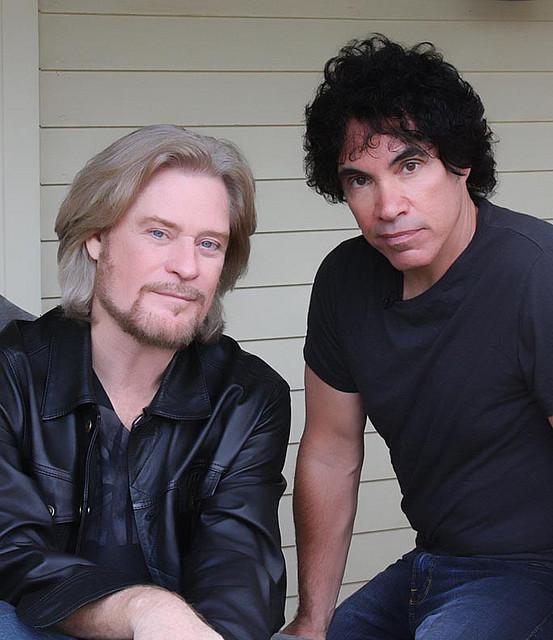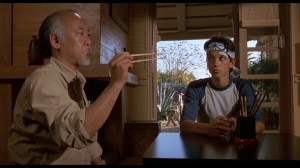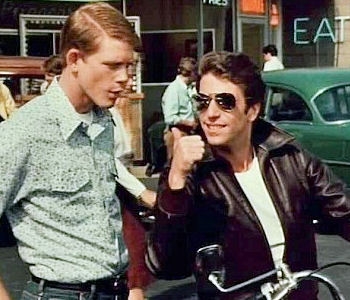I remember when… When I was your age… This one time…
When I became a father, I promised myself I wouldn’t be one of those guys always throwing personal flashbacks and memories on my kid. I remember my own parents (and my friends’ parents) starting their sentences with “When I was your age…” or other similar phrases and watching my friends roll their eyes. Naively, I thought I could avoid doing this. What a stupid assumption on my part.
In fact, recently, I’ve caught myself using these lines (and derivatives of these lines) more often. It could be several reasons; maybe because my daughter is approaching high school, or that I’ve picked up on a comment or question she had, or even the fact that I’m noticing stars of my generation showing up on current shows or movies she’s watching. A few recent examples:
On finding new music: You have iTunes and the internet. Immediate access. We had MTV. MTV doesn’t even have videos anymore. The cool new break-dancing cuts? You needed to know someone that had a cousin that had a friend living in the Bay Area so they could copy the mix onto your 60-minute blank cassette tape. Total turnaround time: a week, if you were lucky.
Dance Routines: You know why you and your friends don’t have cool dance routines? Because you don’t go to each other’s houses! Every day after school, I would be hanging out at someone’s house playing basketball, raiding the refrigerator, or yes…practicing dance routines! After a month of practice everyday, my friend Paul and I had two dance routines: “The Bird” and “Jungle Love.” At every dance we went to, we would wait to channel our inner Morris Day and Jerome.
The history of stars: Jamie Gertz. Patrick Dempsey. Henry Winkler. Molly Ringwald. Robert Downey, Jr. The list goes on and on. Huge stars from back in the day. My daughter is either: 1) discovering old TV shows or movies (like the John Hughes films); or 2) seeing these stars for the first time today. My wife and I have fun giving her history lessons. (I had to show her pictures of a young, cool, James Spader. She only knows the older, heavier James Spader in “The Office.”)
I’ve since changed my mind on the whole “I remember when” promise I made myself as a young dad. My little jaunts back in time have been extremely valuable:
It gives my daughter a window into my history (not too much of a window, though!). Instead of just seeing me as her father, she gets a feeling of how I was as a kid.
It gives us a chance to laugh. Sharing a laugh with your kid is priceless. It shows that you have a sense of humor and can laugh at yourself.
There are opportunities for lessons…without it sounding like a lesson. How do lessons stick with us and how are they passed on over time? Through stories. And what better way to teach a lesson to your kid than telling them a personal story?
More importantly, it allows us to communicate. Next to trust, communication is the biggest factor in solidifying our personal bonds.
Again, don’t overdo it. Too much reminiscing will lead to the eye-rolling. Pick and choose your interactions and be mindful of the point you’re trying to get across. As your kids get older, they’ll remember and cherish these conversations.
Speaking of music videos and instant access…I remember collecting six hours of music videos so I could learn and practice dance moves in my living room (this didn’t help, by the way). It wasn’t easy. We didn’t have cable TV so I had to painstakingly watch every music video show that came on and press record on the video recorder. One of my all time favorites? The Gap Band…Party Train!
Do you catch yourself reminiscing with your kid?
Post your comments below…



















